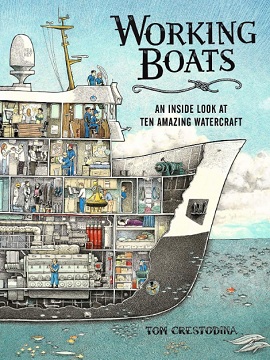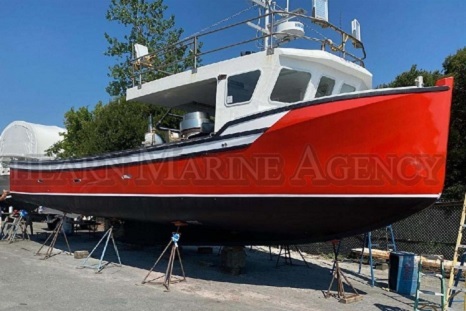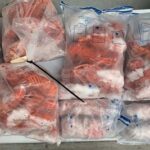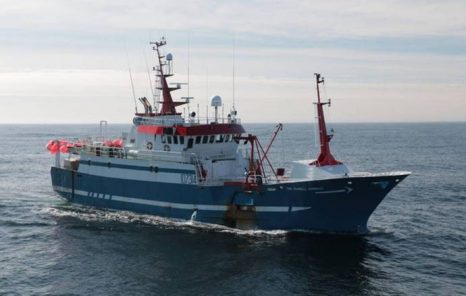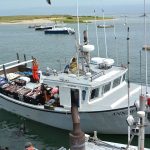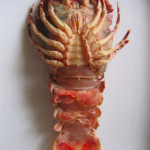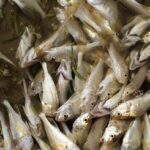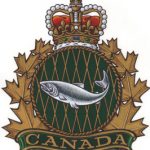Tag Archives: gillnetter
Athearn Marine Agency Boat of the Week: 50′ Duffy Gillnetter, Lobster,Longliner,Scalloper
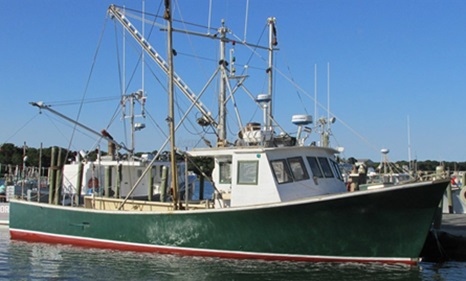 To review specifications, information, and 26 photos’, >click here< To see all the boats in this series, >click here< 06:38
To review specifications, information, and 26 photos’, >click here< To see all the boats in this series, >click here< 06:38
Athearn Marine Agency Boat of the Week: 44’x17′ Novi Lobster, Gillnetter, Scalloper
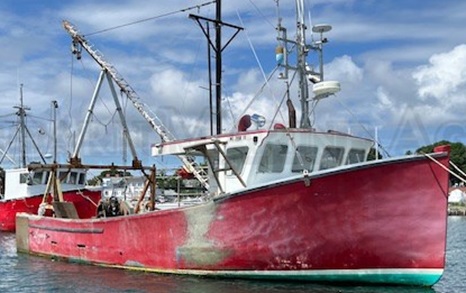 To review specifications, information, and 25 photos’, >click here< To see all the boats in this series, >click here< 06:25
To review specifications, information, and 25 photos’, >click here< To see all the boats in this series, >click here< 06:25
Athearn Marine Agency Boat of the Week: 47’X18′ 2010 Novi Lobster, Gillnetter, Tuna – Open Stern/Split Wheelhouse
To review specifications, information, and 44 photos’, >click here<, To see all the boats in this series >click here< 12:01
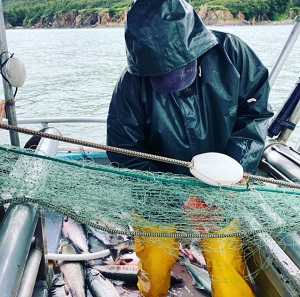
More uncertainty for Alaskan fishermen, ‘Devastating,’ meager chum salmon returns worry the fishing industry
“I have 35 years of experience and I’ve never seen a year this poor since 1988,” said Lars Strangeland, a gillnetter based in Juneau. “The market is extremely poor. We were looking at terrible prices wherever it goes.” The shutdown of restaurants and changes in international markets, all complicated by the coronavirus pandemic, is leading to less demand for chum salmon and roe. Strangeland is on the Board of Directors of United Southeast Alaska Gillnetters, and he said chum returns this year have been, “devastating.” “It’s unprecedented and staggeringly poor as well,” he said. >click to read< 13:07
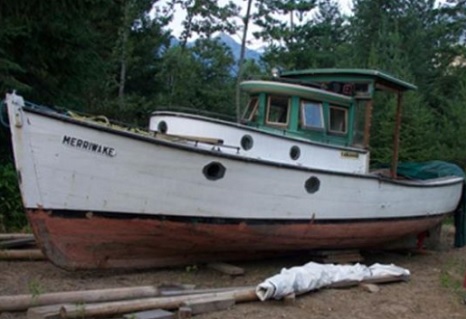
Interior B.C. historical society restoring 90-year-old Japanese-Canadian boat
The Merriwake fishing boat first hit the water 90 years ago near Prince Rupert, B.C. The gillnetter built by master boat-maker Isamu Matsumoto belonged to a Japanese-Canadian fisherman. However, it was confiscated from him in 1942 when he and 22,000 other Japanese-Canadians were forced into internment camps during the Second World War. Today, the Slocan Valley Historical Society is trying to raise between $20,000 and $30,000 to restore the boat to display it on a permanent dry dock near the village of Slocan in the West Kootenay region. >click to read<17:10
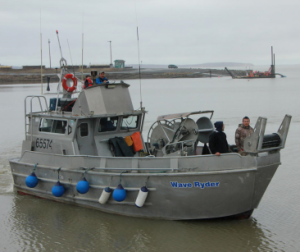
Togiak sac roe herring’s lone gillnetter calls it a season
Seagulls wheeled under gray skies, and low clouds spit rain as the F/V Wave Ryder motored back into Dillingham after nearly four weeks on the water near Togiak. The purse seine fleet took its quota by May 2, leaving Frank Woods and his crew on their own to fish for the 7,212 tons of herring allocated to gillnetters. On Thursday, he ended his season. The mood on the 32-foot aluminum drift boat was celebratory as it was hauled out and put up in the Peter Pan Seafoods boat yard. Audio, >click to read<22:10

Fixed Gear Closures – NOAA closes areas to protect whales
As NOAA Fisheries continues to address the rising peril to whales in coastal waters stretching from New England to Florida, it is reminding local fishermen of current or impending gear closures off Massachusetts. The closures, primarily around Cape Cod and in Cape Cod Bay, are part of NOAA Fisheries’ Atlantic large whale take reduction plan developed to provide increased protection to several species of whales — particularly the endangered North Atlantic right whales whose population continues to plummet. Some of the gear closures impact trap and pot fishermen, while other impact gillnetters. >click to read<19:15
Gillnetter heeds siren call of the river – Fishing, family, community. That’s Crouse’s melody.
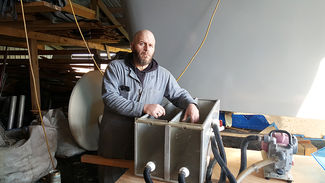 Crouse didn’t come from a fishing family but he grew up in a neighborhood of fishermen in Skamokawa. “For as long as I can remember I wanted to fish the river,” Crouse said. “In kindergarten they had us make plates out of clay and I drew a gillnet boat on mine.” When he was 14, he asked his basketball coach, Bill Olsen if he could work for him on the river. At 15, he went to Alaska to fish during the summer. “Paul Dretsch worked in a cannery up there and he told me to work there until I found a job on a boat,” Crouse said. “There is a radio station in the Bristol Bay area, and every three hours job listings came up. After my second shift in the cannery, I called someone who was advertising for boat board fish picker. That was my first job up there.” It was everything he wanted and it was more difficult than he had imagined. In his mid-40s now, Crouse works at Wauna four days a week and waits to hear when he can get back out on the river. He rebuilds boats and buys outfits from retiring fishermen when he can. He’ll take what he needs and part and parcel out the rest to sell. His wife, Erla, drives a school bus and works at her coffee shop in Cathlamet, Waterway Espresso. Read the story here 09:16
Crouse didn’t come from a fishing family but he grew up in a neighborhood of fishermen in Skamokawa. “For as long as I can remember I wanted to fish the river,” Crouse said. “In kindergarten they had us make plates out of clay and I drew a gillnet boat on mine.” When he was 14, he asked his basketball coach, Bill Olsen if he could work for him on the river. At 15, he went to Alaska to fish during the summer. “Paul Dretsch worked in a cannery up there and he told me to work there until I found a job on a boat,” Crouse said. “There is a radio station in the Bristol Bay area, and every three hours job listings came up. After my second shift in the cannery, I called someone who was advertising for boat board fish picker. That was my first job up there.” It was everything he wanted and it was more difficult than he had imagined. In his mid-40s now, Crouse works at Wauna four days a week and waits to hear when he can get back out on the river. He rebuilds boats and buys outfits from retiring fishermen when he can. He’ll take what he needs and part and parcel out the rest to sell. His wife, Erla, drives a school bus and works at her coffee shop in Cathlamet, Waterway Espresso. Read the story here 09:16






